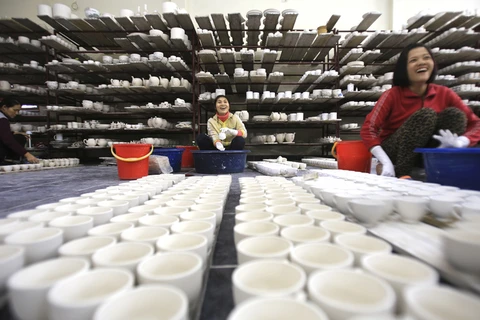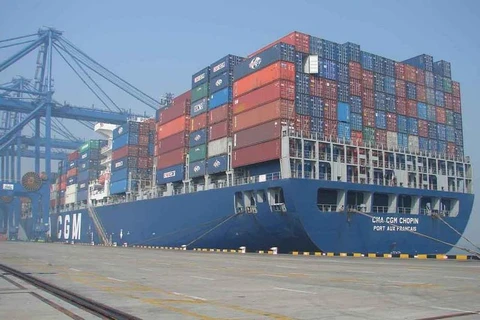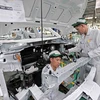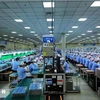 Confectionary production chain at the Hong Huy Viet Nam Trading Company Limited in the northern province of Nam Dinh.(Source: VNA)
Confectionary production chain at the Hong Huy Viet Nam Trading Company Limited in the northern province of Nam Dinh.(Source: VNA) “There will be leading enterprises standing on the top of the pyramid to direct other enterprises to push up the economy,” Hang said at a workshop on developing private economy in Hanoi on April 13.
She said State-owned enterprise encroachment on private business operations must be minimised, and policies must be formulated to drive up the private sector and develop its competitive capacity.
The seminar, jointly held by the Central Theoretical Council, Vietnam Association of Consumer Goods Development and Hanoi Business Association, was aimed at evaluating the situation of private economic development, breaking down barriers and creating conditions for the private economic sector to boost sustainable operation.
Deputy Chairman of the Central Theoretical Council Nguyen Van Thao said Party and State policies and mechanisms had created the legal basis and favourable socio-economic environment for developing the private sector. In the past two years, the startup movement had been accelerated. More than 110,000 businesses were established in 2016 – the highest figure in recent years.
Employing 85 percent of the workforce, the private sector grew at an average rate of 10.2 percent per year in the 2003-15 period, contributing about 39-40 percent of the country’s GDP.
Thao said the private sector had initially formed a number of large-scale private economic groups, but it had not yet become a key driving force for the economy because most business models were intended to turn individual households into enterprises.
“A majority of private businesses are operating on a small scale, with low and out-of-date technologies and slow renovation. Their financial capacity, labour productivity, business efficiency, product quality and competitiveness are weak,” said Thao.
A presentation at the seminar reported that there are more than 80 percent of private businesses operating in trade and services, over 10 percent in industry and only 1 percent in agriculture.
Agreeing to the measures needed to develop the private economy, the rector of Vietnam National University’s School of Economics and Business, Nguyen Hong Son, emphasised the importance of building and implementing national industry policies, which would focus on developing the private economy, encouraging the appliance of modern technologies and renovation and creativeness.
According to Director of the Central Institute for Economic Management Nguyen Dinh Cung, the Government has adopted policies on the development of the private businesses. These include encouraging investment in areas subject to sustainable development; accelerating divestment, restructuring, equitisation of State-owned enterprises; building a level playing field for various types of businesses in the Vietnamese market; fostering investment in advanced technologies; renovating and raising the quality of vocational training; and supporting large private businesses to expand to overseas market.-VNA
VNA






















